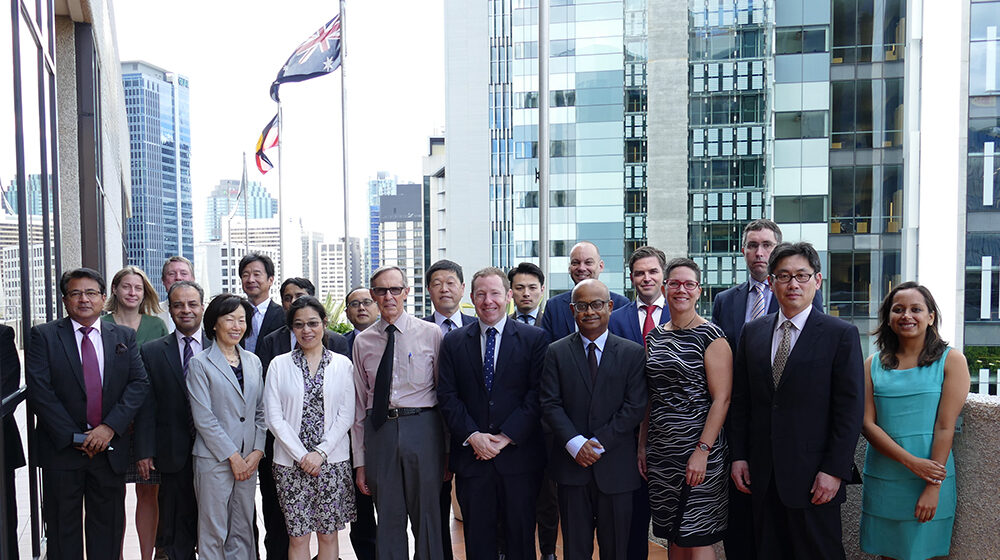Last month Griffith Asia Institute (GAI) hosted the second Australia-India-Japan Trilateral with the generous support of Japan’s Ministry of Foreign Affairs, and the Japanese Consulate-General in Brisbane. The trilateral dialogue—the second in a series launched last year—achieved much in terms of its agenda and outreach. While last year’s theme focused on regional security with a broad brushstroke, this year’s agenda narrowed in on the strategic dynamics of an evolving Indo-Pacific.
From the outset, participants recognised that we are living through a time of unprecedented turbulence in the Indo-Pacific, caused both by the rise of a more assertive China as well as an uncertain first year of the Trump administration. The overall perception that the international rules based order is under considerable and increasing stress in this region cast the backdrop for discussion.
Strategic and tactical behaviour within the Indo-Pacific region appears to be changing in ways that until recently, were mostly absent from the regional security landscape. Indeed, as the regional distribution of economic and military power has shifted, so too have the interests and security concerns of many states. While many states in the region have become wealthier and more integrated economically, many also have become less certain about the existing political order’s future, and the types of strategic behaviour its maintenance will require, or the strategic risks and costs its decay will likely impose. The Trilateral explored these themes with a view to decipher these emerging strategic behaviours more coherently.

(L to R) Professor Caitlin Byrne, Director, Griffith Asia Institute, Ms Keiko Yanai, Consul-General, Consulate-General of Japan , Brisbane and Associate Professor Michael Heazle, Griffith Asia Institute.
The principal themes examined across the day-and-half of deliberations included:
- Emerging trends in conventional and nuclear weapons technology, with attention to the quantum leaps being made by states across the region.
- Increasing reliance on grey zone warfare tactics particularly by regional states seeking to extend their maritime interests.
- Broadening use of economic statecraft as a means to advance geopolitical interests.
- Expanding deployment of covert influence operations designed to subvert democratic process and civil-society discourse across the region.
This Dialogue was significant in terms of fostering a broad understanding among participants representing the three countries (all key stakeholders in the regional security order). While naturally providing a focal point on areas of policy convergence, the dialogue also provided a useful opportunity to understand and tease out points of difference on key issues.
The open and lively discussion fostered between participants in the trilateral setting continues to deepen understanding of key Indo-Pacific perspectives. Importantly, it paves the way for more robust security dialogue and cooperation between Australia, India and Japan at a time when the region might benefit most from it.
2018 Australia-India-Japan Trilateral: The evolving strategic dynamics of the Indo-Pacific was hosted by the Griffith Asia Institute and the Ministry of Foreign Affairs Japan on Monday 5 February. Griffith Asia Institute, the Australian Institute for International Affairs and the Australian Strategic Policy Institute will publish blogs from the trilateral participants addressing key thematic areas over coming weeks.
Photos from the Trilateral can be found online.








